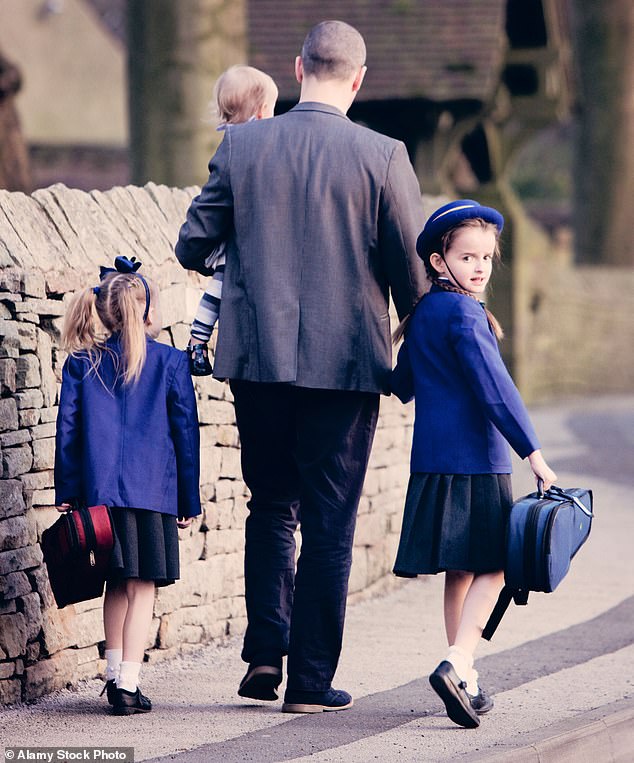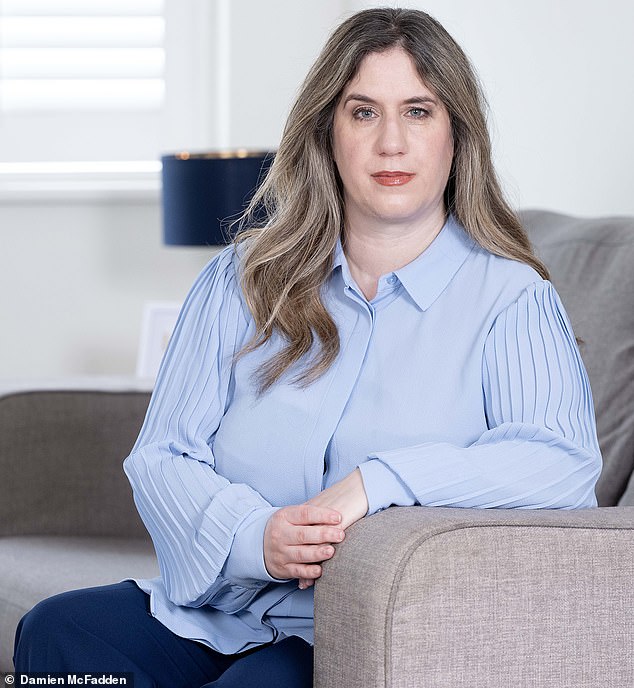While sitting on the bus, I could hear the teenagers around me talking about the fight they were going to have with their rivals.
Knives were mentioned. I cowered in my seat, terrified. Later, in an ungainly attempt at chivalry, those same boys would show the “posh” girl (me) which school entrances we should use to avoid the “dangerous” students.
It was the early 1990s and the idea of a knife was shocking. Especially, perhaps, for a naïve former schoolgirl like me. Like anyone, my school days shaped me for the rest of my life, but I had a sudden fall from a sheltered childhood into rather more turbulent waters.
Today, as a romance novelist, I create my own worlds in which I have power over the environment in which the characters develop their lives, but in real life I don’t always feel in control.
Not everyone is defined by their youth, but I had a particularly tough coming of age. While other students at my quiet private girls’ school in north London finished their studies in Europe at 16, I was taken out of my privileged bubble and sent to the local comprehensive school.
Romance novelist Bettina Hunt had a particularly tough coming of age when she was plucked from her privileged private school bubble and sent to the local comprehensive school at 16.
As Labor plans to impose VAT on private school fees, pushing up to 40,000 private school pupils into state schools according to the Institute for Fiscal Studies, mine is a clearly sobering story. From 11 to 16 I learned in small classes, taught by charming teachers who gave the impression of wanting the best for us.
It wasn’t perfect. Located on a residential street, there were no playing fields and we had to go to the local cricket ground for sports and Alexandra Palace for ice skating. There was some low-level pettiness – when I was given the lead role in Oliver! When I was 11 years old, my classmates criticized me.
But it was quickly resolved when I told a teacher, and I never feared the consequences of “snitching” on a classmate, as public school kids later told me.
Then disaster struck. My parents, who had their own retail business, were hit by the recession of the early 1990s and ran out of money for private education. Rates also increased. There was nothing more to do than send me to a state high school 35 minutes by bus from our house.
I cried on the last day of school, and over the summer, the nerves began to take effect. But it wasn’t until my new school handed me a map on the first day that I really understood how different my environment was.
The place was huge and the crowd of children seemed overwhelming. There was no way I could know the names of the kids in my year, let alone the entire school.
Every time I entered the sixth grade building, I saw new people. Obviously, there were kids too, which was a whole new dynamic. I had brothers, so I didn’t feel intimidated, but the barging in the hallways made me nervous every time I walked from class to class.
The school was one of those more or less old buildings to which many fragments had been added, little by little: temporary prefabricated classrooms in poor condition that later became permanent. It wasn’t so much that he was hostile, but that the newcomers were viewed with distant curiosity. At my old school, anyone new was assigned a mentor.
No one was actively mean here, but it was very impersonal. I quickly lost any sense of being special.
With so many children, it was difficult for teachers to focus on individuals or even, it seemed, feel sympathy for them.

Nowadays, writes Bettina, it seems incredible to me that someone can afford to send their children to a private school. It cost my parents about £600 a term in the 1990s; now it’s ten times more
I remember breaking my finger and having it tied up, and then getting in trouble for not taking notes in class. I felt indignant; I was a conscientious student, but I didn’t know how to write. Still, the teacher reprimanded me for not participating.
I think what surprised me most was the attitude towards learning. I assumed everyone wanted to be there, but there was a lot of disarray. Our media studies teacher had just finished his training and it only lasted a couple of weeks due to the humiliating ridicule he received in his classes.
I couldn’t believe that students would be so rude to a teacher or show such a lack of respect for authority.
The worst thing was having to do my A-level Law at another school. I was the only girl riding the bus with the boys.
The teenagers are cocky and took great pleasure in telling me about a gang who wanted to have a Montague/Capulet style fight with them. This second school was in the same neighborhood as my house, but it could have been in a different universe. It was in a dangerous area, and the buildings were dilapidated and worn, with trash strewn around every corner.
At recess time the hallways were packed with students pushing and shoving, and on one occasion I was knocked against the wall in my rush and hit my head quite hard.
I had never experienced anything like it. I was used to politeness and staying on the sidelines. I’m not even five feet tall, so I felt really insecure.
The scariest thing was going to the bathroom. I was told to “get the key” to the office. It was disconcerting, but they told me it was due to vandalism.
I was petrified: this was the 1990s, when everyone knew that episode of Grange Hill where Brian’s head was thrown into the toilet! It never happened to me, but every time I went I was afraid it might happen.
A girl was constantly late because she was working in addition to going to school. In my naivety I thought: why are you working instead of attending classes? Now I wonder if maybe she had to help support her family.
Nowadays, I find it incredible that anyone can afford to send their children to a private school. It cost my parents about £600 a term in the 1990s; now it is ten times more.
If you haven’t attended public and private school, you won’t be able to understand the huge differences there can be. It has affected my outlook on life; I am a very reserved person, always distrustful of new environments and aware that they can become dangerous.
I am quiet until I have assessed a situation (the threat of a knife fight is not easily forgotten) and I am cautious around new people.
With fees as high as they are today, private school was not an option for my two children, who are now eight and 16 years old. But I spent months researching the right school, studying policies on behavior and fighting, asking other parents about the prevalence of knives. and safety in bathrooms.
Looking back, I am sure that, at an impressionable age, I was strongly influenced by the shift from the private to the state. In a way, yes, for the better. I certainly became more aware of those who were not as fortunate as me. I learned that bad behavior is not always the result of innate character, but is often related to economics and background.
I learned that many children in larger classes simply do not learn as well as those in schools where numbers are kept low.
But it also made me more shy. The caution I felt stayed with me. In adult life, I get anxious and panic quite quickly if I hear shouting or boisterous behavior around me (especially in tight spaces). I am aware that the situation could change at any time.
I don’t blame my parents and I don’t blame the teachers. Children simply needed a thick skin in the London public schools of the 1990s, and I didn’t have it. Nowadays, I suspect they need an even harder one, which is something to remember if you find yourself doing the math on school fees and wondering if they’re worth it.


